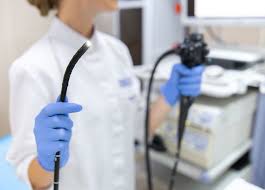 Veterinary care is a critical part of keeping animals healthy and happy. In addition to diagnosing and treating animal illnesses, veterinarians also provide routine preventive care, prescribe medications, and perform surgical procedures. Most veterinarians focus their practice on companion animals, while some specialize in horse care or food-producing animals. Our website provides info on BetterVet Philadelphia, Mobile Vet Care
Veterinary care is a critical part of keeping animals healthy and happy. In addition to diagnosing and treating animal illnesses, veterinarians also provide routine preventive care, prescribe medications, and perform surgical procedures. Most veterinarians focus their practice on companion animals, while some specialize in horse care or food-producing animals. Our website provides info on BetterVet Philadelphia, Mobile Vet Care
Postoperative care involves monitoring animal health and behavior. This monitoring varies with the species and type of surgery. In general, monitoring should focus on the animal’s temperature, cardiovascular and respiratory functions, electrolyte balance, and pain management. Surgical incisions may require additional care to avoid infection or reduce recovery time.
Veterinary care requires a team of highly trained professionals with appropriate training and experience. The staff should have a thorough knowledge of the species used at the institution. In addition, veterinarians should have access to animal medical records. They should also be familiar with the institutional animal program. If an animal is involved in a research project, a veterinarian who is familiar with the program is recommended.
Veterinary medicine has contributed significantly to human health over the past century. It has helped reduce the incidence of brucellosis, tuberculosis, and many other diseases in humans and animals. In addition, veterinarians have developed safe and effective vaccines for a wide range of animal diseases, including feline distemper. They’ve also been instrumental in the development of hip-joint replacements and organ transplants.
Veterinarians are also responsible for preventing the spread of diseases, including bioterrorism. Some veterinarians are even part of the Department of Homeland Security, working to protect animal health and develop anti-terrorism procedures. In addition, manmade and natural disasters pose serious threats to animal health, and veterinarians play an important role in helping communities recover after such events.
Community-based veterinary medicine is a rapidly expanding field. This area of practice requires veterinarians to be sensitive to complex barriers. For example, many veterinary clients have barriers to access, transportation, and language. It is critical that future veterinarians understand these obstacles and work in an environment that is inclusive to diverse communities.
The first step to providing compassionate care for animals is to recognize symptoms of distress. These signs can include depression, anorexia, and rapid or labored breathing. Other signs of distress include a lack of grooming, increased aggression, and periocular porphyrin discharge. Often, these signs of distress aren’t immediately visible and can go undetected until they are too severe to hide. In order to recognize signs of distress, veterinarians must be trained in individual clinical indicators that indicate the health and well-being of the animal.
CONTACT INFO
BetterVet Philadelphia, Mobile Vet Care
33 W King St #531
Malvern, PA 19355
(215) 600-2157
